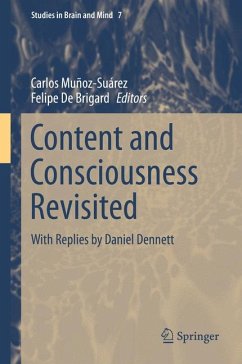
Philosophy and Psychology of Time (eBook, PDF)
Versandkostenfrei!
Sofort per Download lieferbar
40,95 €
inkl. MwSt.
Weitere Ausgaben:

PAYBACK Punkte
20 °P sammeln!
This book is an edited collection of papers from international experts in philosophy and psychology concerned with time. The collection aims to bridge the gap between these disciplines by focussing on five key themes and providing philosophical and psychological perspectives on each theme.The first theme is the concept of time. The discussion ranges from the folk concept of time to the notion of time in logic, philosophy and psychology. The second theme concerns the notion of present in the philosophy of mind, metaphysics, and psychology. The third theme relates to continuity and flow of time ...
This book is an edited collection of papers from international experts in philosophy and psychology concerned with time. The collection aims to bridge the gap between these disciplines by focussing on five key themes and providing philosophical and psychological perspectives on each theme.
The first theme is the concept of time. The discussion ranges from the folk concept of time to the notion of time in logic, philosophy and psychology. The second theme concerns the notion of present in the philosophy of mind, metaphysics, and psychology. The third theme relates to continuity and flow of time in mind. One of the key questions in this section is how the apparent temporal continuity of conscious experience relates to the possibly discrete character of underlying neural processes. The fourth theme is the timing of experiences, with a focus on the perception of simultaneity and illusions of temporal order. Such effects are treated as test cases for hypotheses about the relationship between the subjective temporal order of experience and the objective order of neural events. The fifth and the final theme of the volume is time and intersubjectivity. This section examines the role of time in interpersonal coordination and in the development of social skills.
The collection will appeal to both psychologists and philosophers, but also to researchers from other disciplines who seek an accessible overview of the research on time in psychology and philosophy.
The first theme is the concept of time. The discussion ranges from the folk concept of time to the notion of time in logic, philosophy and psychology. The second theme concerns the notion of present in the philosophy of mind, metaphysics, and psychology. The third theme relates to continuity and flow of time in mind. One of the key questions in this section is how the apparent temporal continuity of conscious experience relates to the possibly discrete character of underlying neural processes. The fourth theme is the timing of experiences, with a focus on the perception of simultaneity and illusions of temporal order. Such effects are treated as test cases for hypotheses about the relationship between the subjective temporal order of experience and the objective order of neural events. The fifth and the final theme of the volume is time and intersubjectivity. This section examines the role of time in interpersonal coordination and in the development of social skills.
The collection will appeal to both psychologists and philosophers, but also to researchers from other disciplines who seek an accessible overview of the research on time in psychology and philosophy.
Dieser Download kann aus rechtlichen Gründen nur mit Rechnungsadresse in A, B, BG, CY, CZ, D, DK, EW, E, FIN, F, GR, HR, H, IRL, I, LT, L, LR, M, NL, PL, P, R, S, SLO, SK ausgeliefert werden.












